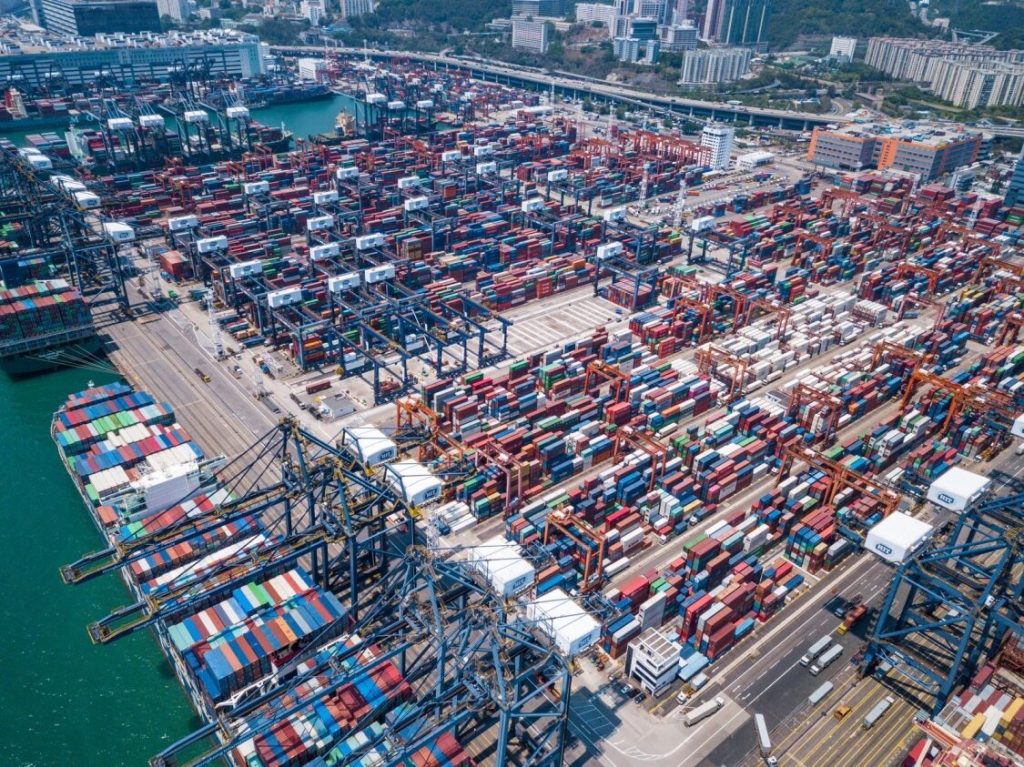Market

April 22, 2024
LME aluminum price hits resistance at January 2023 peak
Written by Guillaume Osouf
The LME 3-month price is unchanged on the morning of April 22 and was last seen trading at $2,670/mt. This morning the price stopped at the last significant peak reached in January 2023 at $2,679.50/mt. We could expect resistance to sustain there for a while and the recent gains to therefore consolidate.
Meanwhile, SHFE aluminum was up over 2% today but gains were all erased by the close. The cash contract settled at RMB20,570/mt and last traded at RMB20,495/mt.
Chinese primary imports were strong again in March
China’s imports of unwrought aluminum and products were 380 kt in March, up 11.8% m/m and 89.5% y/y. In Q1, China imported 11 mt of unwrought aluminum and products, up 91.4% y/y. Within this, the country imported 249 kt of primary aluminum (760110) in March, up 245.8% y/y, of which 116 kt were of Russian origin.
Meanwhile, other Asian countries (India, Malaysia, UAE, Indonesia and Iran) shipped more primary metal to China in March due to favorable arbitrage conditions. However, the arbitrage window has been closed since the end of March due to the surging LME price. We expect this could impact imports negatively in April.

Yunnan to further ramp up aluminum smelting capacity
The Yunnan government has lifted power restrictions from April 10 amid improving power supply in the province. In Q1, Yunnan thermal coal power supply reached 169.2 TWh, up 13.5% y/y; while wind power supply hit 14.59 billion kWh, up 61.2% y/y; and solar power supply reached 4.69 billion kWh, up 163.7% y/y. This will support the ramp-up of the rest of the idled smelting capacity in Yunnan in the coming weeks as well as the increase in some additional capacity.
Yunnan Shenhuo restarted 150 ktpy of aluminum smelting capacity between mid-March and April. According to its investors meeting, Yunnan Shenhuo expects to fully restart and increase its operational capacity to 900 kt/y amid the improving power supply from the rainy season. We expect the company will operate fully by June. Another smelter confirmed it could operate fully by July. Others will ramp up the rest of their idled capacities soon given the current favorable cost situation. Hence, we understand Yunnan will increase its operational capacity by 800–1000 kt/y in the second half of this year. In total, Yunnan smelters have restarted 530 kt/y aluminum smelting capacity between the middle March and the start of April.
Hydro opens new recycling facility in Høyanger
Hydro has invested NOK240 M in a new purpose-built recycling facility, located near the primary aluminum plant in Høyanger. The recycled aluminum will be used to lower the carbon footprint of Hydro’s casting products even further. The facility is the first of its kind in Norway, with an annual capacity to process 36,000 to of post-consumer aluminum scrap.
At the new facility, aluminum scrap, originating from vehicles, building facades, furniture, packaging and other kinds of consumer goods will be de-coated before being melted into ingots. The recycled aluminum will then be mixed with primary metal, made with renewable hydropower, to make low-carbon casting products. In addition to recycling post-consumer aluminum scrap, Hydro is working toward full decarbonization by introducing new technologies such as carbon capture and storage, as well as developing emission-free primary aluminum production.
Hydro aims to become a net-zero producer of aluminum by 2050 and is on track to achieve a 30% reduction in emissions by 2030 compared to 2018 levels. Aluminum recycling is one of the main pathways of Hydro’s decarbonization strategy.
South32 provides operational update for 2024 Q1
Today, South32 released its latest operational results for its Q3 FY ending in June 2024. During the quarter, its Hillside smelter achieved record production, while Brazil Aluminum (Sao Luis) continued to ramp up toward nameplate capacity.
Production at Hillside reached 181 kt in Q1, up 2% y/y, while shipments totaled 209 kt, up 6% y/y. The increase in shipments was even higher on a q/q basis (+33%) due to three carry-over shipments from the prior quarter which supported a drawdown in inventory. Production at Sao Luis, of which it owns 40% of the shares, increased 18% y/y at 26 kt and sales were up 39% y/y at 32 kt as the smelter continued to ramp up all three potlines.
Production at Mozal totaled 71 kt in Q1, down 12% y/y but also down 13% q/q as the smelter continues to implement its recovery plan, while managing the impact of load shedding, South32 said. However, shipments were up 35% y/y at 58 kt but still down 36% q/q, which was due to lower product availability and the timing of shipments.
South32 also pointed out that its metal production returned to 100% LME-grade quality by the end of the quarter. Finally, the group said it continued to work with Eskom and the Mozambique government to secure the smelter’s hydro-electric power supply beyond 2026, as there are currently no viable alternative suppliers of renewable energy at the required scale.
Meanwhile, alumina production was down by 1% YTD, as the company completed planned calciner maintenance at Worsley Alumina, while Brazil Alumina remains on track to achieve production guidance.






